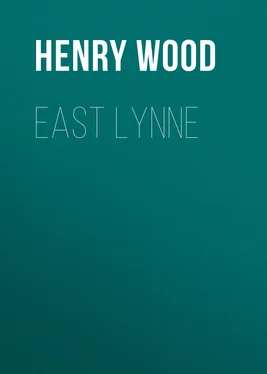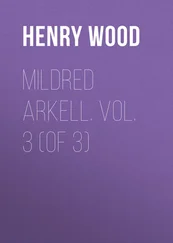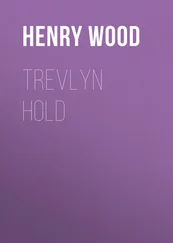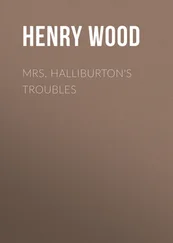Henry Wood - East Lynne
Здесь есть возможность читать онлайн «Henry Wood - East Lynne» — ознакомительный отрывок электронной книги совершенно бесплатно, а после прочтения отрывка купить полную версию. В некоторых случаях можно слушать аудио, скачать через торрент в формате fb2 и присутствует краткое содержание. Жанр: foreign_prose, literature_19, foreign_antique, на английском языке. Описание произведения, (предисловие) а так же отзывы посетителей доступны на портале библиотеки ЛибКат.
- Название:East Lynne
- Автор:
- Жанр:
- Год:неизвестен
- ISBN:нет данных
- Рейтинг книги:5 / 5. Голосов: 1
-
Избранное:Добавить в избранное
- Отзывы:
-
Ваша оценка:
- 100
- 1
- 2
- 3
- 4
- 5
East Lynne: краткое содержание, описание и аннотация
Предлагаем к чтению аннотацию, описание, краткое содержание или предисловие (зависит от того, что написал сам автор книги «East Lynne»). Если вы не нашли необходимую информацию о книге — напишите в комментариях, мы постараемся отыскать её.
East Lynne — читать онлайн ознакомительный отрывок
Ниже представлен текст книги, разбитый по страницам. Система сохранения места последней прочитанной страницы, позволяет с удобством читать онлайн бесплатно книгу «East Lynne», без необходимости каждый раз заново искать на чём Вы остановились. Поставьте закладку, и сможете в любой момент перейти на страницу, на которой закончили чтение.
Интервал:
Закладка:
“Who in the world can they be?” whispered Barbara to Miss Carlyle. “That old stupid is always making a mistake and putting people into the wrong places.”
“The earl and Lady Isabel.”
The color flushed into Barbara’s face, and she stared at Miss Corny. “Why, she has no silks, and no feathers, and no anything!” cried Barbara. “She’s plainer than anybody in the church!”
“Plainer than any of the fine ones—than you, for instance. The earl is much altered, but I should have known them both anywhere. I should have known her from the likeness to her poor mother—just the same eyes and sweet expression.”
Aye, those brown eyes, so full of sweetness and melancholy; few who had once seen could mistake or forget them; and Barbara Hare, forgetting where she was, looked at them much that day.
“She is very lovely,” thought Barbara, “and her dress is certainly that of a lady. I wish I had not had this streaming pink feather. What fine jackdaws she must deem us all!”
The earl’s carriage, an open barouche, was waiting at the gate, at the conclusion of the service. He handed his daughter in, and was putting his gouty foot upon the step to follow her, when he observed Mr. Carlyle. The earl turned and held out his hand. A man who could purchase East Lynne was worthy of being received as an equal, though he was but a country lawyer.
Mr. Carlyle shook hands with the earl, approached the carriage and raised his hat to Lady Isabel. She bent forward with her pleasant smile, and put her hand into his.
“I have many things to say to you,” said the earl. “I wish you would go home with us. If you have nothing better to do, be East Lynne’s guest for the remainder of the day.”
He smiled peculiarly as he spoke, and Mr. Carlyle echoed it. East Lynne’s guest! That is what the earl was at present. Mr. Carlyle turned aside to tell his sister.
“Cornelia, I shall not be home to dinner; I am going with Lord Mount Severn. Good-day, Barbara.”
Mr. Carlyle stepped into the carriage, was followed by the earl, and it drove away. The sun shone still, but the day’s brightness had gone out for Barbara Hare.
“How does he know the earl so well? How does he know Lady Isabel?” she reiterated in her astonishment.
“Archibald knows something of most people,” replied Miss Corny. “He saw the earl frequently, when he was in town in the spring, and Lady Isabel once or twice. What a lovely face hers is!”
Barbara made no reply. She returned home with Miss Carlyle, but her manner was as absent as her heart, and that had run away to East Lynne.
CHAPTER VIII
MR. KANE’S CONCERT
Before Lord Mount Severn had completed the fortnight of his proposed stay, the gout came on seriously. It was impossible for him to move away from East Lynne. Mr. Carlyle assured him he was only too pleased that he should remain as long as might be convenient, and the earl expressed his acknowledgments; he hoped soon to be re-established on his legs.
But he was not. The gout came, and the gout went—not positively laying him up in bed, but rendering him unable to leave his rooms; and this continued until October, when he grew much better. The county families had been neighborly, calling on the invalid earl, and occasionally carrying off Lady Isabel, but his chief and constant visitor had been Mr. Carlyle. The earl had grown to like him in no common degree, and was disappointed if Mr. Carlyle spent an evening away from him, so that he became, as it were, quite domesticated with the earl and Isabel. “I am not quite equal to general society,” he observed to his daughter, “and it is considerate and kind of Carlyle to come here and cheer my loneliness.”
“Extremely kind,” said Isabel. “I like him very much, papa.”
“I don’t know anybody that I like half as well,” was the rejoinder of the earl.
Mr. Carlyle went up as usual the same evening, and, in the course of it, the earl asked Isabel to sing.
“I will if you wish, papa,” was the reply, “but the piano is so much out of tune that it is not pleasant to sing to it. Is there any one in West Lynne who could come here and tune my piano, Mr. Carlyle?” she added, turning to him.
“Certainly there is. Kane would do it. Shall I send him to-morrow?”
“I should be glad, if it would not be giving you too much trouble. Not that tuning will benefit it greatly, old thing that it is. Were we to be much at East Lynne, I should get papa to exchange it for a good one.”
Little thought Lady Isabel that that very piano was Mr. Carlyle’s, and not hers. The earl coughed, and exchanged a smile and a glance with his guest.
Mr. Kane was the organist of St. Jude’s church, a man of embarrassment and sorrow, who had long had a sore fight with the world. When he arrived at East Lynne, the following day, dispatched by Mr. Carlyle, Lady Isabel happened to be playing, and she stood by, and watched him begin his work. She was courteous and affable—she was so to every one—and the poor music master took courage to speak of his own affairs, and to prefer a humble request—that she and Lord Mount Severn would patronize and personally attend a concert he was about to give the following week. A scarlet blush came into his thin cheeks as he confessed that he was very poor, could scarcely live, and he was getting up this concert in his desperate need. If it succeeded well, he could then go on again; if not, he should be turned out of his home, and his furniture sold for the two years’ rent he owed—and he had seven children.
Isabel, all her sympathies awakened, sought the earl. “Oh, papa! I have to ask you the greatest favor. Will you grant it?”
“Ay, child, you don’t ask them often. What is it?”
“I want you to take me to a concert at West Lynne.”
The earl fell back in surprise, and stared at Isabel. “A concert at West Lynne!” he laughed. “To hear the rustics scraping the fiddle! My dear Isabel!”
She poured out what she had just heard, with her own comments and additions. “Seven children, papa! And if the concert does not succeed he must give up his home, and turn out into the streets with them—it is, you see, almost a matter of life or death with him. He is very poor.”
“I am poor myself,” said the earl.
“I was so sorry for him when he was speaking. He kept turning red and white, and catching up his breath in agitation; it was painful to him to tell of his embarrassments. I am sure he is a gentleman.”
“Well, you may take a pound’s worth of tickets, Isabel, and give them to the upper servants. A village concert!”
“Oh, papa, it is not—can’t you see it is not? If we, you and I, will promise to be present, all the families round West Lynne will attend, and he will have the room full. They will go because we do—he said so. Make a sacrifice for once, dearest papa, and go, if it be only for an hour. I shall enjoy it if there’s nothing but a fiddle and a tambourine.”
“You gipsy! You are as bad as a professional beggar. There—go and tell the fellow we will look in for half an hour.”
She flew back to Mr. Kane, her eyes dancing. She spoke quietly, as she always did, but her own satisfaction gladdened her voice.
“I am happy to tell you that papa has consented. He will take four tickets and we will attend the concert.”
The tears rushed into Mr. Kane’s eyes; Isabel was not sure but they were in her own. He was a tall, thin, delicate-looking man, with long, white fingers, and a long neck. He faltered forth his thanks with an inquiry whether he might be allowed to state openly that they would be present.
“Tell everybody,” said she, eagerly. “Everybody you come across, if, as you think, it will be the means of inducing people to attend. I shall tell all friends who call upon me, and ask them to go.”
Читать дальшеИнтервал:
Закладка:
Похожие книги на «East Lynne»
Представляем Вашему вниманию похожие книги на «East Lynne» списком для выбора. Мы отобрали схожую по названию и смыслу литературу в надежде предоставить читателям больше вариантов отыскать новые, интересные, ещё непрочитанные произведения.
Обсуждение, отзывы о книге «East Lynne» и просто собственные мнения читателей. Оставьте ваши комментарии, напишите, что Вы думаете о произведении, его смысле или главных героях. Укажите что конкретно понравилось, а что нет, и почему Вы так считаете.












